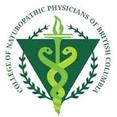On This Page:
Note: Table of contents is clickable
1) Dismissing Women's Experiences In Medicine Needs To Change
2) What you need to know about Hormone Health
3) How We Can Help
Some Important Things to Know about Hormone Health:
anchor: dismissingwomeninehealthcareneedstochange
Dismissing Women's Experiences In Medicine Needs To Change
In a Climate where women’s experiences of their body are often dismissed in healthcare, a holistic approach can sometimes be a refreshing change. I often see women in my practice who are suffering significantly and have often been dismissed when they try to explain the gravity of how their hormonal conditions are affecting them. As a teaching physician who supervises clinical interns, it is extremely important that I convey to my students that this dismissive attitude is unacceptable in medicine and is something that needs to change. We, as medical professionals, need to believe our patients when they tell us something is painful and extremely disruptive in their life. Every time a patient is minimized or made to feel less than for seeking care, they are much more likely to stop seeking treatment and the opportunity for them to get effective treatment to help end their suffering is less and less likely.
anchor: whatyouneedtoknowabouthormonehealth
What You Need to Know About Hormone Health
|
anchor: youhaveoptionsandyouroppionmatters
You Have Options & Your Opinion MattersWithin Naturopathic medicine and using a mind, body, spirit perspective, there are so many choices and options for treatment. We usually present a holistic approach with multiple options but ultimately, you get to choose the course of treatment that you resonate with best and that you feel suits you. After all, you know yourself and your body best. Within your treatment options, we might discuss supplements, herbs, vitamins, acupuncture, homeopathy, injections, counselling, and even pharmaceuticals. There is no pressure at any point to choose one course of treatment versus another. You are in charge of what you would like to try and informed consent matters so you can ask all the questions you need to before you make a decision. |
Some Important Things To Know...#1 - BC Women’s Health Foundation, In Her Words, has surveyed the experience of women in the healthcare system in BC and found that:
anchor: numberonewomentstrugglewithequalaccesstomedicine
|
Some Important Things To Know...#2 - CONTINUED - BC Women’s Health Foundation, In Her Words, has surveyed the experience of women in the healthcare system in BC and found that:
anchor: numbertwoindigenousimmigrantstrugglewithequalacess
|
anchor: symptomthatmightindicatethatyoushouldgetyourhormonescheckedout
These Symptoms Might Indicate That You Should Get Your Hormones Checked Out:
|
|
anchor: menstrualissues
Menstrual Issues
Help is available beyond just the standard birth control options. Having extreme symptoms past minor cramping is something that needs to be looked at and wanting help with these symptoms is not silly or frivolous and not something you just have to suck up. Premenstrual symptoms like cramping, breast tenderness, bloating, changes in mood, nausea or vomiting are all signs of hormonal irregularities and are treatable. Irregular periods or having heavy or excessive bleeding are signs that something is not right and should be evaluated and addressed by a healthcare professional.
|
|
anchor: endometreosis
EndometriosisEndometriosis is a complex condition and can be very debilitating. It affects approximately 1 in 10 women and almost 200 million globally. Its key symptom is knife-like stabbing pain that can be related to the cyclical nature of the menstrual cycle or may be chronic. We still don’t fully understand the condition but pain seems to arise from tissue that resembles the uterus’s endometrial lining being found outside the uterus. This is most commonly experienced around the abdomen and pelvic regions but in rare cases, it can also be found around the lungs. Endometriosis can often be overlooked as just menstrual cramps. It can be difficult to diagnose as there are no current lab tests that can identify it. Diagnosis requires laparoscopy which is a surgical procedure that requires a specialist. Unfortunately, the majority of cases take several years to be diagnosed, which means many are enduring the debilitating nature of this condition without answers or treatment for far too long which erodes their quality of life and increases stress, anxiety, and depression. A holistic approach to treating endometriosis is a great approach because there is not one size fits all cure or treatment or solution that suits everyone. With complex conditions such as this, it requires a much more individualized approach that considers multiple aspects of the human experience including mind, body, and spirit. There are also strategies that can be implemented even while patients are waiting for a diagnosis and some may experience benefits even before being officially diagnosed. |
Some Important Things To Know...#3 - Sexuality, ethnicity, culture, ability, education, location, and income will determine how accessible healthcare is to a woman and affects what type of bias she will encounter in the healthcare system which will have an impact on her experience and the quality of care she will receive. anchor: numberthreedeterminantsforqualityofhealthcare
|
Some Important Things To Know...#4 - Continued: BC Women’s Health Foundation, In Her Words, has surveyed the experience of women in the healthcare system in BC and found that:
anchor: numberfouryoungandmaturewomenstrugglewithaccess
|
|
anchor: fibroids
FibroidsFibroids are growth of smooth muscle or fibrous connective tissue that can appear in the uterus. These growths can be as small as a grain of rice and as big as a football. Fibroids can sometimes grow inwards to affect the uterine cavity or grow outwards to affect the surrounding structures around the uterus. Most commonly fibroids can cause heavy or prolonged menstrual bleeding, pelvic pressure or pain, increased urinary frequency, difficulty emptying the bladder, constipation, and back or leg pain. Early diagnosis is important as fibroids larger in size have more negative health consequences and increased risks. Physical examination followed by abdominal and intravaginal ultrasound confirms the diagnosis. A holistic approach that includes the whole person is vital in these cases as prevention is necessary. As estrogen has been shown to encourage growth, holistic strategies that consider mind, body and spirit can help alter this pattern and can be very beneficial. |
|
anchor: PCOS
PCOS - Polycystic Ovarian Syndrome
Polycystic Ovarian Syndrome is a very common condition that can be a complex diagnosis. While irregular menstrual cycles and facial hair growth are classic symptoms, thorough conversation with your doctor around other symptoms and your medical history is critical for diagnosis. There is no one blood test that is diagnostic for PCOS, but there are multiple markers that can be used effectively in the diagnostic process. Transvaginal ultrasound is indicated for any patient suspected of having PCOS but again is not fully diagnostic of the condition. PCOS is of particular importance when it comes to fertility and family planning. Approaching PCOS from a holistic mind, body, spirit perspective can be very helpful whether you are suspecting you might have the condition or you’ve already received a diagnosis. Treating PCOS often involves mental and emotional considerations such as stress and anxiety, it involves diet and nutrition, and may even encourage self reflections on identity and life path. A truly integrated medical approach often works well for patients that suspect or have this diagnosis.
|
|
anchor: Menopause
MenopauseMenopause is a pivotal life change that can come with many symptomatic challenges like hot flashes, fatigue, weight gain, insomnia, night sweats, vaginal dryness, and more. Menopause can for some, bring on some significant mental-emotional challenges. Many women experience a change in identity, and often as a result a time of mourning or grief of who you once were. Some describe menopause as a second puberty and in some cultures, it is a right of passage. In some circles, having open conversations about “the change” is still considered taboo and can further exacerbate feelings of shame, anxiety or worry about life-altering symptoms, and isolation. Sometimes menopausal symptoms continue on for some patients for decades, which is often not talked about. I regularly have senior women coming to see me who start to tell me of their challenges as they get to know me better and rapport is built and they establish that I will not dismiss their symptoms. They are well past menopause and still suffering menopausal symptoms but they haven’t been able to get treatment because they are either too afraid to bring it up in an appointment due to social taboos or they have tried and been dismissed as complaining too much. These women are suffering needlessly and my hope in writing and talking about it is to normalize women discussing their health concerns and being taken seriously so that fewer are suffering in silence. Making sure that these patients feel heard, and have support is vitally important. Approaching menopause from a holistic perspective that is inclusive of all aspects of life is really important. It can be helpful to openly talk about the feelings and emotions that arise from going through this process and also get help with some of the physical challenges that come with it. |
|
anchor: hormonehealthandmentalhealth
Hormone Health & Mental Health
Mental health and hormonal health can be inseparable in some cases. Hormones are so intertwined with how they affect mood, energy, cognitive function, blood flow, and so much more. A condition like, Premenstrual Dysphoric Disorder (PMDD) is a prime example of how hormonal and mental health intersect and are interconnected. PMDD is a serious condition with severe and debilitating irritability, depression, or anxiety in the week or two before your period and lasts two to three days after your period starts. Symptoms are extreme and are physical, mental, and emotional. Because everything is connected, working in a holistic way that addresses mind, body, and spirit has a greater impact over addressing the root cause and multiple root causes and patterns that are happening simultaneously.
|
|
anchor: thyroidhealth
Thyroid HealthThyroid disorders are common. It’s estimated that 10% of Canadians have thyroid related illnesses. Women are 4 times more likely than men to suffer from a thyroid disorder and 60% of those with thyroid disease are unaware of their condition. Common presenting symptoms are fatigue, weight gain, hair loss, constipation, diarrhea, heart palpitations, iron deficiency, anxiety, irritability, mood swings, muscle weakness, cold sensitivity, and insomnia. Some thyroid disorders are autoimmune in nature and require lab testing and routine monitoring. Identifying thyroid disorders early prevents delays in treatment and progression of the disease. Using a holistic approach that considers the whole person is very beneficial when looking at thyroid illness. Strategies might include diet, vitamins, nutrients and herbs but making sure there is mental and emotional support to address the impact of stress is critical to the success of treatment long term. |
|
anchor: adrenalandcortisolimbalances
Adrenal & Cortisol Imbalances
The adrenals and cortisol levels are a pivotal hormonal element that is often overlooked and are crucial for helping to keep a healthy circadian rhythm and help you cope with stress. With the level of stress being very common in today’s world, imbalances in adrenal function and cortisol regulation are widespread. Symptoms that are common and indicative of adrenal and cortisol imbalance are fatigue, stress, anxiety, irritability, mood swings, insomnia, feeling wired and tired, low stress tolerance, brain fog, low blood pressure, burnout, and headaches. Imbalances in your adrenals and cortisol are indicative of a life imbalance and a mind, body, spirit approach that is holistic in nature is needed to address the problem from its root cause. Only addressing the physical elements of adrenal dysregulation will only go so far. Making sure you work on the mental and emotional and lifestyle behaviors are imperative to long term resolution and success in treatment.
|
anchor: hormonehealthhowtowork
How We Can Help
How You Can Work With MeWhen it comes to working with hormones and the conditions listed above, it’s important that you find the healthcare provider that is the best fit to work with you. I know that as a male healthcare provider I might not be the first choice for many as it might feel too vulnerable to discuss certain symptoms. My hope for all patients, not just my own, is that they find someone who they resonate with and feel safe discussing anything related to their health, someone who will listen and validate their experience and offer them choice and informed consent so they can work together to make decisions in the best interest of the patient. If we see the therapeutic relationship between doctor and patient as something that is sacred, safe, and an open space for curiosity and potential discovery, I think we start to move in a direction of healing with just that alone. If this resonates with you, I’d be happy to meet with you to see if we are a fit to work together. You can book a complimentary meet and greet here. |




